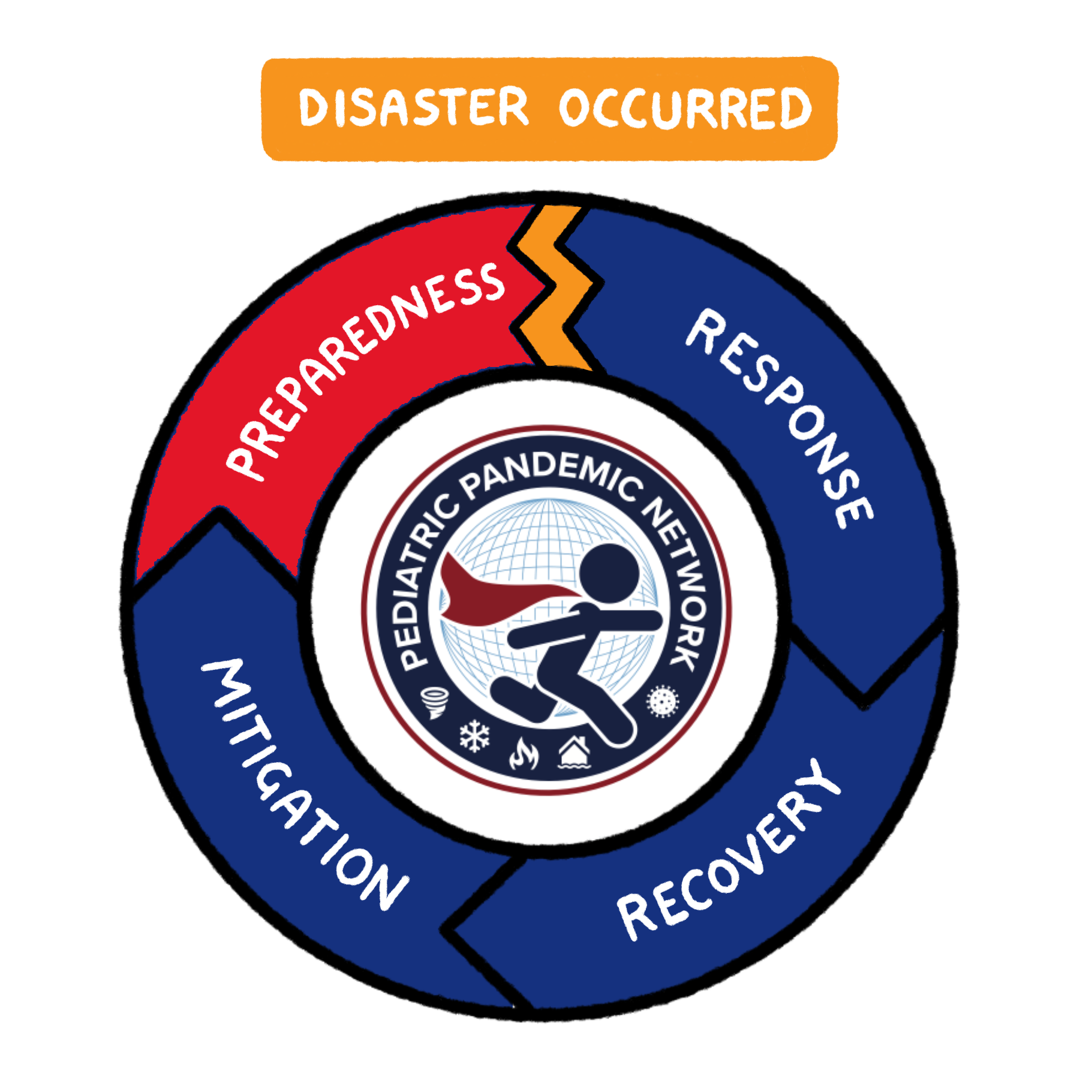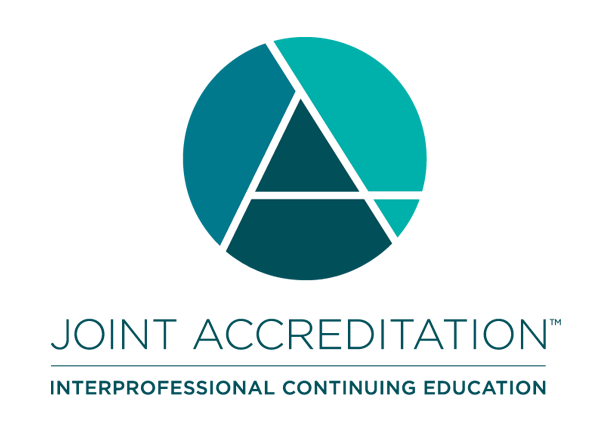Pediatric Behavioral Health in Disasters: Preparedness
 In the preparedness phase, clinicians should take inventory of their capacity and capability to respond to the social-emotional needs of children and their families in both the immediate aftermath of a disaster as well as in the coming months. Both clinicians and caregivers need to be able to identify the signs/symptoms of trauma, strategies that can be used to build on individual, family, and community strengths, as well as considerations for additional needs for special populations such as children with special health care needs, neurodevelopmental disorders, and those coming from historically marginalized and minoritized groups. This curriculum is intended to assist with identifying individual gaps in knowledge of care across the disaster management cycle and in providing guidance for training other medical professionals on how to become disaster-ready as it pertains to caring for children’s mental and behavioral health care needs.
In the preparedness phase, clinicians should take inventory of their capacity and capability to respond to the social-emotional needs of children and their families in both the immediate aftermath of a disaster as well as in the coming months. Both clinicians and caregivers need to be able to identify the signs/symptoms of trauma, strategies that can be used to build on individual, family, and community strengths, as well as considerations for additional needs for special populations such as children with special health care needs, neurodevelopmental disorders, and those coming from historically marginalized and minoritized groups. This curriculum is intended to assist with identifying individual gaps in knowledge of care across the disaster management cycle and in providing guidance for training other medical professionals on how to become disaster-ready as it pertains to caring for children’s mental and behavioral health care needs.
Working with Families
To be a trauma-informed system of care, the engagement of families is key. Behavioral health clinicians can assist families with making a plan, preparing a disaster supplies kit, and becoming familiar with a family readiness toolkit. These resources reinforce that all families need to be prepared for natural, biologic, and manmade disasters. Medical or behavioral health professionals can assist families with developing an emergency plan that involves identification of how the family will communicate and addresses specific needs of the household including where to shelter, safe meeting places, special medical needs, and critical contact information.
Actionable Steps
The majority of the behavioral health care that affected youth will receive occurs in the outpatient setting. To be disaster-ready, it is recommended that all behavioral health clinicians receive training in Psychological First Aid (PFA). A plan for obtaining additional training to treat trauma for those who are experiencing posttraumatic stress symptoms in response to experiencing a catastrophic event should be identified.
Target Audience
- Nurses
- Nurse Practitioners
- Physicians
- Physician Assistants
- Psychologists
- Social Workers
Learning Objectives
- Describe the typical trajectory of posttraumatic stress symptoms in children/adolescents.
- Explain how Psychological First Aid can be used in the immediate aftermath of a catastrophic event.
- Identify 3 contributing factors that make children with special health care needs more vulnerable in a disaster.
Joint Accreditation Statement
In support of improving patient care, this activity has been planned and implemented by Children’s National Hospital. Children’s National Hospital is jointly accredited by the Accreditation Council for Continuing Medical Education (ACCME), the Accreditation Council for Pharmacy Education (ACPE), and the American Nurses Credentialing Center (ANCC), to provide continuing education for the healthcare team. Children’s National Hospital Accreditation Provider# 4008362


Available Credit
- 1.00 ACPE PharmacistChildren’s National Hospital is accredited by the Accreditation Council for Pharmacy Education (ACPE) as a provider of continuing pharmacy education. This program meets ACPE criteria for 1.00 contact hours.
- 1.00 AMA PRA Category 1 Credit™Children's National Hospital designates this Enduring activity for a maximum of 1.00 AMA PRA Category 1 Credit™. Physicians should claim only the credit commensurate with the extent of their participation in the activity.
- 1.00 ANCCChildren's National Hospital will provide 1.00 Nursing Contact Hours for this Enduring activity.
- 1.00 APAContinuing Education (CE) credits for psychologists are provided through the co-sponsorship of the American Psychological Association (APA) Office of Continuing Education in Psychology (CEP). The APA CEP Office maintains responsibility for the content of the programs. All confirmed participants will earn 1.00 CE credits upon successful completion of the learning event and evaluation.
- 1.00 ASWBAs a Jointly Accredited Organization, Children’s National Hospital is approved to offer social work continuing education by the Association of Social Work Boards (ASWB) Approved Continuing Education (ACE) program. Organizations, not individual courses, are approved under this program. Regulatory boards are the final authority on courses accepted for continuing education credit. Social workers completing this course receive 1.00 continuing education credits.
- 1.00 General
- 1.00 ParticipationSuccessful completion of this continuing education activity.

 Facebook
Facebook X
X LinkedIn
LinkedIn Forward
Forward